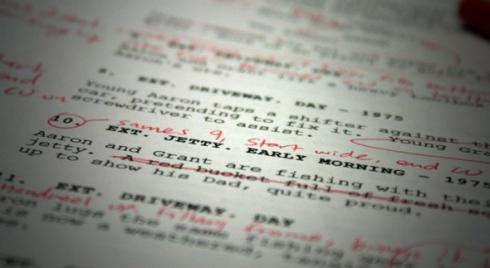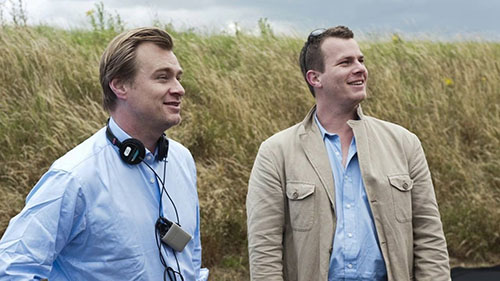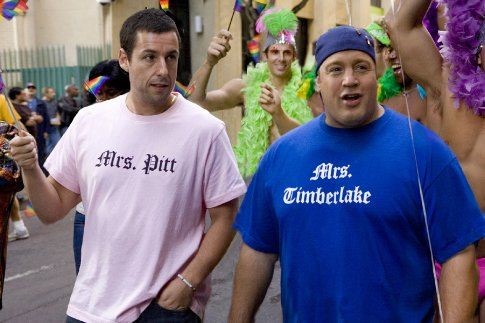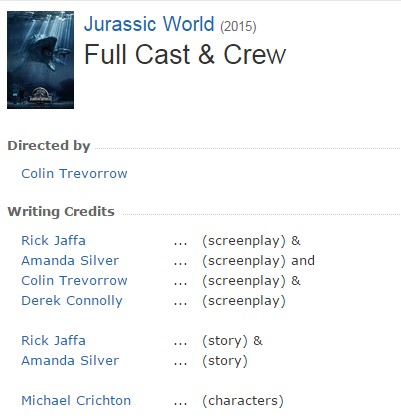Script Rewrites: The Good, The Bad, and The Convoluted
By Zachary Evans | 12-Oct-2015

Screenplays are the all-important bedrock for any movie. Great filmmakers may be able to make improvements on the script during production, but it is difficult to overcome a weak foundation. Scripts, like all types of writing, are rarely, if ever, perfect on their first go, however. This is where rewrites come in.
Ideally, scripts will emerge from the rewriting process better off. However, this isn't always the case. Sometimes, rewrites can completely ruin what could have been a solid film. Sometimes this is because of simply terrible decisions and bad taste, but other times it is the result of too many writers injecting their vision into the screenplay, turning it into a convoluted mess.
The Good
Across all types of creative endeavors, collaboration is an incredibly important skill. Even when it seems like the product could not possibly improve, a new voice has the potential to either move things in a new direction or improve upon what is already there. Look no further than the titular subject of Danny Boyle's upcoming film, Steve Jobs, and how Apple has changed under Tim Cook's creative vision. The company is surely different, and Jobs' spark is missed frequently, but the practical measures Cook has brought to the company have been important to moving the company forward.
At their best, rewrites and collaboration on a script work the same way. A new voice can come in and revive a screenplay that was close, but hadn't quite reached its full potential. These scripts may have an excellent concept, but don't quite match that potential in execution, or maybe the there's just too much going on plot-wise, and needs to have its focus narrowed. Frequently, a screenplay simply needs to draw on the strengths of multiple people in order to reach its full potential.

Christopher and Jonathan Nolan. Image courtesy of Comic Book Resources
Christopher Nolan's Interstellar is an incredibly interesting example of rewriting. Originally, the film was to be directed by Steven Spielberg, based on a script written by Nolan's brother, Jonathan. After Spielberg left the project, Christopher Nolan signed on to direct, but decided to make some large changes to the script. Early drafts of the script have found their way online, and the differences are notable.
It's hard to say that either version of these scripts are necessarily superior to the other, but they do highlight the importance rewrites can have for shaping a screenplay to those working on the film. The script written for Spielberg feels like a Spielberg film, but not a Christopher Nolan one, and vice versa.
The Bad
Sometimes, shaping an existing screenplay to the filmmakers involved doesn't go so well. I Now Pronounce You Chuck & Larry was an abomination of a film, but it didn't have to be. The final product was racist, homophobic, and generally offensive across the board. Beyond its offensive content, the film is also insulting to screenwriting and filmmaking in general. The movie was based on a script titled Flamers by Academy Award winning writing duo Jim Taylor and Alexander Payne, but was given an uncredited rewrite by Adam Sandler and others, transforming it from a heartfelt and sensitive story looking at the meaning of sexual identity and masculinity in modern America into a checklist of stereotypes offset by juvenile gags and physical humor.

Adam Sandler and Kevin James being offensive and terrible. Image Courtesy of The Movie Network.
This rewrite horror story also serves as an excellent example of what is keeping Hollywood stuck in the habits of eras that should have died out long ago. Recently, USC's Annenberg School of Communication performed a study looking into portrayals of gender, race, and LGBT individuals in the top 100 grossing films of each year from 2007 to 2014. This study found that the representation for women, minorities, and LGBT people are incredibly dismal in popular films. This is something that absolutely needs to change, and the rewrite done to I Now Pronounce You Chuck & Larry is a perfect example of the power rewrites hold on a film. Unfortunately, in this case, that power was used for terrible evil.
The Convoluted
Jurassic World was an undeniable commercial hit this summer. It was far from a genius piece of storytelling, however, and by looking at the writing credits for the film, it becomes clear why.

The world's longest writing credit. Image courtesy of IMDB
That's not just four different people working on this one screenplay, it's two different teams working on it. Rick Jaffa and Amanda Silver wrote the initial script, which was then rewritten by Colin Trevorrow (who also directed) and Derek Connolly. What is really important to note, is that Jaffa and Silver are not only billed before Trevorrow and Connolly, but get credit for the story, as well. Trevorrow and Connolly appealed the Writers Guild of America's decision to split the screenplay credits, and not only unanimously lost, but also secured the “story by” credit for Jaffa and Silver.
It's hard to tell exactly what aspects of the film belong to each writing team. Considering, however, the WGA's decision to give story credits to Jaffa and Silver, and the overall convoluted and weak plot elements of the film, it seems that Jurassic World heavily suffered because of an overabundance of creative visions being thrown at it. This shows that in order for rewrites to be effective, they need to be done with purpose, and come from a genuine place of creative inspiration. Instead, these rewrites are frequently only concerned with quickly addressing studio notes and concerns by adding and deleting randomly throughout. When that is done, the resulting film is little more than convoluted and nonsensical.
Comments

